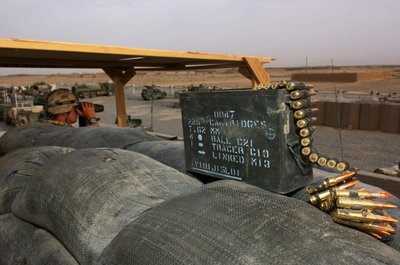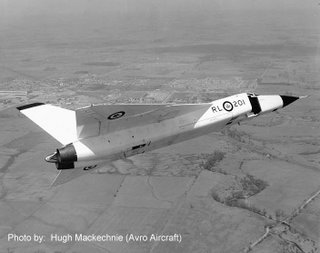How Did We Get Here? An Analysis
 Canadian soldier at Kandahar
Canadian soldier at KandaharThat is not my oil, that is not my beautiful car.
Originally publisihed September 4, 2006
Canadian soldiers are now involved in a NATO counter insurgency in Afghanistan. This summer, for the first time since Korea we saw Canadian soildiers in a fire-fight. How did we get here?
Well, 9/11 happened - Al-Qaeda was blamed. The government of Afghanistan, the Taliban, aided and abetted them. On October 7 the area bombing of Taliban strong-holds began. The Americans supported one of several groups fighting in parts of Afghanistan. The Northern Alliance and others formed a provisional government on April 18, 2002; officially ousting the Taliban; and institutionalizing US primacy in Central Asia.
Canadian troops were sent by the Liberal government of Jean Chretien in 2002; to fill a power vacuum created by US bombing, and to rebuild the country after 10 years of Soviet occupation and 10 more years of civil war.
Four years later the Taliban have regrouped. What we are doing there now, in no way resembles peace keeping or reconstruction. Canadian soldiers are involved in a NATO counter insurgency. Its time to take stock.
How did we get here, why are we trying to kill them? Oh yes.., 'the Taliban aided and abetted Al-Qaeda'.
The Taliban are no friends to democracy, rule of law, the enlightenment, or equal rights. They desire a theocracy like the Dark Ages(400 - 1600AD) - when Rome projected terror across Europe to maintain its' primacy - not anything like the German Fascism of the 1930's and '40's the Whitehouse keeps pumping. Neither are they friends of an oil pipeline on the northern border. A pipeline that would send regional resources west, to the USA; or the 'Great Satan', in their vernacular.
I personaly wouldn't support a government like that; but that doesn't mean I would go to war with them either.
The Taliban stopped the opium crop when they were in power, something we cannot seem to do. The Taliban have never invaded a foreign land; they are not even a regional power. At this time, a multi-polar global power negotiation is in progress; Taliban rule, while hard to stomach could be a stabilizing force right now. The alternative, an unwinnable urban war could become much worse.
Tolerating the de-facto situation in Afghanistan is not defeat, its clear thinking. Canada, as a member NORAD and a transmogrified NATO should push for another way.
We could have cut a deal with the Taliban in 2001; we may need to now. Before more blood is spilt, NATO's political leaders should talk with the Taliban who controlled 90% of the country pre-9/11.
A US 'No Fly Zone' would project Imperial tranquility with-in a schematic borrowed from British imperial history; a step 'back to the future', towards the G-8 model of the balance of powers pre 9/11. To facillitae this the Americans have to recognise Russian control of her oil industry; just as congress blocked China from buying UNICOL the largest energy company in the world(US), the Russians are protecting their national interest, albeit with slight of hand and 'lawyering'.
A 'No Fly Zone' would facilitate an intelligence net and the ability for the US to project influence on the Taliban government; and to maintain their primacy with-out Al Qaeda or other forces. It would continue to fortify and stabilize the Northern Alliance, and with Russian help, ensure passivity along the northern border; bringing relative stability to the entire region.
We need to deal. The question is, do the Taliban still want to make a deal, now that they have us perplexed militarily? The road out will hurt more than the road in; but less than an unending counter-insurgency amongst an increasingly desperate civilian population.
We have to make a deal. With in a model that recognizes American primacy we can propose: give the Taliban power with-in a new US hegemony that recognizes the strategic importance of the northern frontier and the impropriety of tolerating Al Qaeda's presence. This would serve all the demands of Bush's' 'war on terrorism' and the underlying strategic objective: an stable oil pipel
 ine corridor to Turkey.
ine corridor to Turkey.One problem with this plan is that the Northern Alliance and the Taliban were at war pre 9/11. The Taliban may have been involved in the assassination of the Alliances top field commander, Ahmed Shah Masood. But the reality of the situation is that they would have no choice but to accept the power. Undoubtedly they would display a genuine front while perusing other agenda. This is standard when empires try to project their will.
All this speaks to the complex inter-dependencies present, in the largest geo-political sense. Canada with its vast oil and gas reserves, has very little interest in any of these machinations, aside from one.
We need another assembly line at the Oakville Car Plant. In jest of coarse, but it represents a critical part of our Strategic National Interest. The basis of the post war affluence in Canada was the Auto-Pact. Canada traded leading Jet technology and expertise to the Americans for a share in the American automobile market and other things. This guaranteed Canada's post war affluence; and Americas primacy in air power and space power.
If we continued the "head in the sand", Jean Chretien strategy of doing as little as possible while continually telling the Americans they're too loud, the USA might restrict trade with-in a post 9/11 xenophobic reaction.
American protectionism is not on the political front burner right now in Washington, instead it's been over shadowed by a ugly drift towards persecution of non-citizens, witnessed by the massive Latino demonstrations around the still stalled immigration bill. Illuminating just how important citizenship has become to protecting ones self from both real and perceived new anti-terrorism powers of the state.

60% of Americans polled think their army should be out of the Iraq debacle. They can hardly be vitriolic now if we suggest a different coarse. In fact we might be their best friends again by 2008. We should lead and innovate now, be the honest broker.
This congressional election year, the Whitehouse is easing up on the rhetoric and is trying to look more conciliatory. Surrounded by litigation and corruption scandals all around, and a quagmire in Iraq, the administration might be willing to talk.
Lets make a deal!
c

 Keep on Blogging!
Keep on Blogging!

1 Comments:
Do comments still work on my old blog?
Post a Comment
<< Home